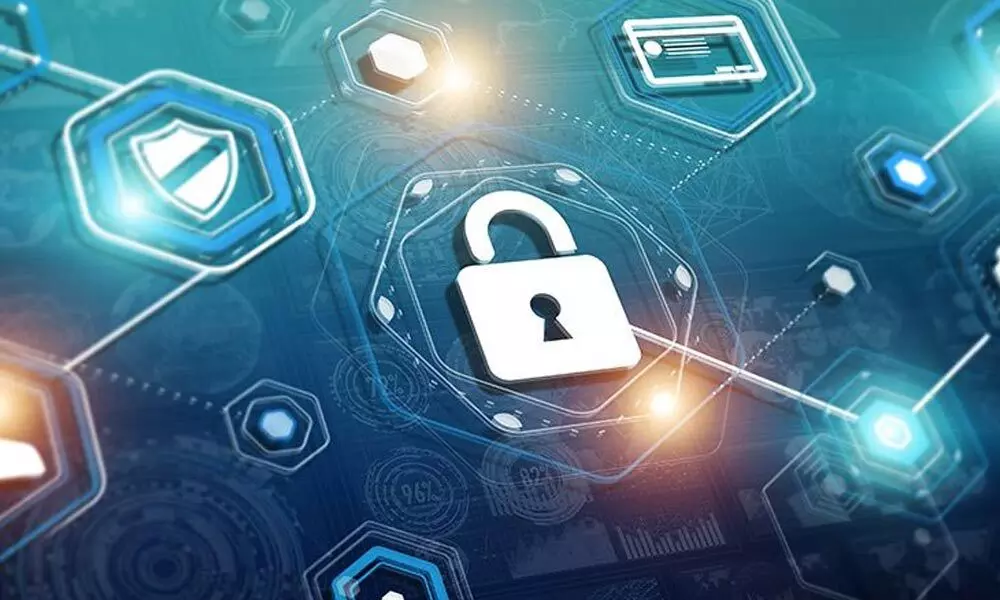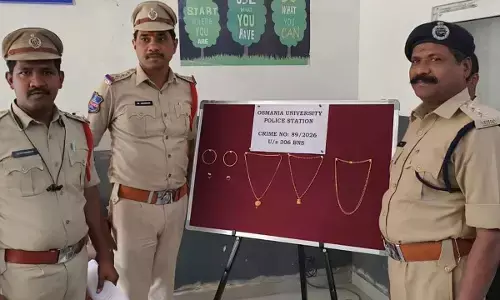Cyber resilience: Staying safe in digital world

Cyber resilience: Staying safe in digital world
With nearly 14 per cent of our population now on social media and this number only likely to rise in the near future, the need to create awareness has become more important than ever
With nearly 14 per cent of our population now on social media and this number only likely to rise in the near future, the need to create awareness has become more important than ever. It is more so for women, as they are the most vulnerable group, only after children, to fall prey to these crimes. The best way to be safe on social media is to have a basic understanding about it. People often forget that the virtual world is not so virtual. That activities performed on social platforms could have real consequences in the real world. However, personal information being put online can be secured.
There are security settings available on all social networking websites but majority of the users are unaware of such features and hence become a victim of cybercrime. For example, on Facebook, everything we share is under our control. We can choose what, when, how and with whom we want to share our posts. It is completely up to us if we want to be friends with someone on Facebook or not, or if we want to follow someone on Instagram, Snapchat or Twitter.
It's better to avoid something from happening in the first place than to fix the damage once it occurs. In this epoch of social media, the concern for women safety is increasing. The question remains, how safe are women online on social media? The simple answer to this is, women are safe on social media "if" they take careful steps. Social media is a mixture of different types of people. Some make use of social media for entertainment while some use it to take the advantage of people, regardless of their gender. At the same time, it's observed that women are experiencing difficulties because of social networking through the misuse of their profile and images which actually mess up their lives.
Here are some social media safety tips for women that can save themselves from falling into the disaster:
• Use complex passwords: You should never share the password of your social media account with anyone. The most common way to misuse your account is by posting/sharing inappropriate things from your social profiles. This can damage your reputation online. Additionally, it's important that you use a complex password for your account so that to avoid any possibility of passwords getting hacked. Using special characters like (!@#$ %&{}<>?/|) in your password will make your password stronger and difficult to guess.
• Never connect with people you don't know : Females get a lot of the follow request on Instagram, Twitter or numerous friend requests on Facebook. In reality, not all of them know her personally. For example, let's say if you meet someone you don't know will you start talking to him or her at first? If we don't know someone personally, we shouldn't have any interaction neither in reality nor in the virtual world. Most of the time strangers play a massive role in causing a crisis of identity on a social media platform. Thus, women must avoid adding people they don't know personally.
• Re-think before you share: Everybody likes to click and share pictures of themselves eating, traveling, doing check-ins, watching movies, working out or any daily activities. Be careful while sharing such information, as this will be easy for the attacker to know your whereabouts. There are plenty of cases which resulted in disasters because of sharing detailed information about the current activity. Hence, one must decide wisely on which post to choose.
• Don't disclose your location: When you access social media from any device, ensure that you turn off the location. The apps sometimes access your device location and when you share an update it fetches the data and might show up on the app. Thus, to maintain privacy, it's suggested that you turn off the location option.
• Photo morphing : You cannot control photo morphing for any of your pics. As far as it's the matter of social media, there will always be the risk of your photo's being photoshopped. Despite that you can save yourself from falling into that misfortune by following some of these basic things:
♥ Define strict privacy for your profile
♥ Don't add strangers to your profile
♥ Set privacy for your pictures
♥ Avoid Using Hashtags
• Hashtags are mainly used for getting visibility. If you too use hashtags on your post you will be visible on the internet. A lot of people are habitual of using hashtags for every post they share on social media. If you avoid using hashtags, it will make you less prone to the attacks that could destroy your reputation.
• Try to use incognito mode: If you are using another computer or a device to login, you should always sign in using incognito mode of the browser. This way, the privacy will be maintained and the chances of compromising your password will be less. The password never gets saved in incognito mode. Thus, all your information like username and password remains safe.
• Keep your profile picture safe: A large number of women prefer not to upload their profile picture on social media because they are afraid that their photo might get misused. To prevent this, Facebook has added a new feature on its platform to ensure the safety of the profile pictures so that nobody can share it. This is a huge step towards protecting self-image of women.
• Logging out: After you have used social media, you should always log out of the account in order to ensure your account remains safe. In case, you are accessing your account from someone else's computer and don't logout, there are chances that your account will be accessed and personal data will be leaked. This will allow that person to defame you, if that is the intention of him/her.
• Don't neglect privacy policy: The privacy policy is a thing that nobody cares about or people usually overlook it thinking "too long to read". If you are one of them, then probably you are missing out really important information or terms about policy. Cutting off short, it is very much important to learn what is mentioned in the privacy policy in detail, as this will help you know up to what extent your profile is safe.
• Don't share more than necessary : Relationships have only two shades in a spectrum – very good or very bad. Even the best of people can swing from one end of the spectrum to the other. That is why use caution when you share intimate messages, pictures, information or anything that has the potential to come back and embarrass you.
• Don't meet online acquaintances alone.
• Update all operating systems on you devices.
• Secure your devices with anti-virus software
• Read the fine print: Know and understand the privacy policy and terms of service of any service you use. Some websites can own, sell, rent or resell your information to anyone they want. This can come back as a bigger problem and the law may not be able protect you since you agreed to the terms and conditions.
• There is no such thing as 'freebies': Freebies come as games, offers, deals, etc. They may be riddled with viruses, spyware and malicious software. These can get into your device and mine all your data.
• Block people you don't want to interact with : Never feel weird declining friend requests from people you barely know. Trust your instinct and ignore, unfriend or block them. You get to choose who stays on your friend list.
• When it comes to safety, both online and offline, common sense is the first line of defence. Your instincts play a critical role in your protection. If something feels 'off', go with your instincts. You don't have to explain your reasoning to anyone.
The floodgates of information that the internet has opened, cannot be closed now. We are practically drowning in it even though it is beneficial. This situation could not have been foreseen but it can be remedied now by building a strong, secure 'digital fort' to house 'Digital India' that would protect it from the cyber-sharks. We can do this by developing strong cyber security'skills. This is the only solution rather the best means to keep ourselves protected from cyberattacks.
(The author is a forensic expert)











